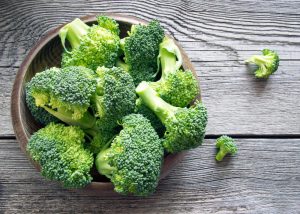When it comes to the elderly, most people have the impression of gray hair, hobbling and slow movement. As the elderly increase in age, the body functions slowly decline, memory is not as good as day by day, so what causes memory loss in the elderly, how to improve the memory of the elderly? With these questions hurry up and take a look with me.
What are the causes of memory loss in the elderly
Older people with missing teeth may cause memory loss. Long-term tooth loss in the elderly is closely related to memory loss. The hippocampus (a gyrus in the brain) is involved in memory and emotional responses, and people’s short-term memories are stored in this area. As people age, the cells in the hippocampus age and short-term memory deteriorates. The lack of teeth makes people chew harder and less often, which will accelerate the degeneration of hippocampal cells and affect people’s memory in the long run.
The elderly eat too much aluminum food may cause memory loss. The World Health Organization proposed that the human body should not exceed 1 mg/kg body weight of aluminum intake per day. If you eat doughnuts, vermicelli, cold noodles, oil cakes, etc., will cause excessive intake of aluminum, affecting the function of brain cells, resulting in memory loss, slow thinking ability.
Long-term satiety in the elderly may cause memory loss. Long-term satiety can cause excessive calorie intake, excess fat, and increased blood lipids in the body, causing an increase in a substance called “fibroblast growth factor”, which leads to cerebral atherosclerosis, reducing the supply of oxygen and nutrients to the brain, resulting in memory loss, premature brain failure, and mental retardation.
Cerebral atherosclerosis in the elderly may cause memory loss. It can lead to chronic cerebral blood supply deficiency, dizziness and headache, memory loss, inattention, reduced mental ability, sleep disorders, emotional and behavioral changes, etc.
How to improve memory in the elderly
Regular walking can improve memory. A 30-minute walk every day is good for the brain. Experts say, “Exercise helps protect the memory and mental function of the elderly.” In addition, exercise can prevent diseases that cause memory loss, such as high blood pressure, diabetes, high cholesterol, obesity and stroke. Some studies have shown that physical activity also triggers the release of a protein. This protein promotes brain cell health and enhances memory.
Getting enough sleep every day can improve memory. Poor sleep can lead to a loss of concentration, and memory can be affected. Use the following methods to help you improve the quality of sleep: do not eat a large meal before going to bed; go to bed and get up on time; do not drink caffeine or alcoholic beverages before bed; and do not smoke.
Learn to effectively avoid stress can improve memory. Experts say, “Too much stress hurts the brain, and high levels of cortisol, a stress hormone, have been shown to cause memory loss.” Relaxation through meditation, yoga or massage is recommended to relieve stress.
Mastering memory skills can improve memory. When you have trouble remembering, it can be helpful to have some skills. For example, each time you learn a new name, say it out loud and commit it to memory. Mentally associate each new name with an image. You can also put up post-it notes around the house and write down important things on them.
The above content is about the causes of memory loss in the elderly and how to improve the memory of the elderly knowledge, see here do you have a clearer understanding of the above content? Memory loss in the elderly is not without cause, so the elderly must avoid these undesirable factors in their daily lives, take frequent walks, get enough sleep, learn to effectively avoid stress, etc., so that their memory will improve.


